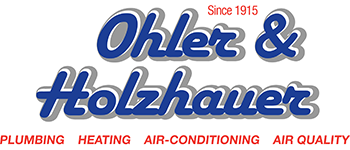
We spend a good majority of our time inside. In fact, the Environmental Protection Agency (EPA) has estimated being inside comprises 90% of our days. Having said that, the EPA also says your indoor air can be three to five times more polluted than outside your home.
That’s since our residences are tightly sealed to enhance energy efficiency. While this is great for your heating and cooling expenses, it’s not so good if you’re a part of the 40% of the population with respiratory allergies.
When outdoors ventilation is limited, pollutants like dust and volatile organic compounds (VOCs) can get trapped. As a consequence, these pollutants can irritate your allergies.
You can enhance your indoor air quality with clean air and usual dusting and vacuuming. But if you’re still having issues with symptoms when you’re at your residence, an air purifier might be able to provide relief.
While it can’t remove pollutants that have landed on your couch or carpet, it could help freshen the air traveling throughout your home.
And air purification has also been scientifically confirmed to help lessen some allergic symptoms, according to the American College of Allergy, Asthma and Immunology. It could also be useful if you or someone in your household has a lung condition, like emphysema or COPD.
There are two models, a portable air purifier or a whole-home air purifier. We’ll examine the differences so you can learn what’s right for your home.
Whole-House Air Purifier vs. Portable Air Purifiers
A portable air purifier is for a lone room. A whole-house air purifier works alongside your home comfort unit to purify your complete home. Some types can clean independent when your home comfort unit isn’t operating.
What’s the Best Air Purifier for Allergies?
Seek an option with a High Efficiency Particulate Air (HEPA) filter. HEPA filters are installed in hospitals and deliver the most comprehensive filtration you can find, as they catch 99.97% of particles in the air.
HEPA filters are even more beneficial when used with an ultraviolet (UV) germicidal light. This dynamic blend can eliminate dust, dander, pollen and mold, all of which are general allergens. For the best in air purification, think over a unit that also has a carbon-based filter to reduce household vapors.
Avoid buying an air purifier that creates ozone, which is the primary ingredient in smog. The EPA cautions ozone might aggravate respiratory troubles, even when released at minor amounts.
The Allergy and Asthma Foundation of America has created a checklist of questions to consider when getting an air purifier.
- What can this purifier extract from the air? What doesn’t it remove?
- What’s its clean air delivery rate? (A better amount means air will be purified faster.)
- How frequently does the filter or UV bulb need to be replaced]? Can I do that by myself?
- How much do replacement filters or bulbs cost?
How to Lessen Seasonal Allergy Symptoms
Want to receive the {top|most excellent|best] results from your new air purification unit? The Mayo Clinic advises doing other measures to reduce your exposure to seasonal allergy triggers.
- Stay in your home and keep windows and doors shut when pollen counts are heightened.
- Have other family members cut the lawn or pull weeds, since these jobs can trigger symptoms. If you are required to do these chores yourself, you might want to consider wearing a pollen mask. You should also shower right away and put on clean clothes once you’re finished.
- Avoid drying laundry outside your home.
- Turn on the AC while indoors or while driving. Consider installing a high efficiency air filter in your residence’s home comfort system.
- Even out your house’s humidity saturation with a whole-house dehumidifier.
- Hardwood, tile or linoleum are the ideal flooring materials for decreasing indoor allergens. If your home has carpet, use a HEPA filter on your vacuum cleaner.
Let Our Professionals Manage Your Indoor Air Quality Requirements
Want to move forward with installing a whole-house air purifier? Give our experts a call at 419-465-8722 or contact us online to schedule an appointment. We’ll help you find the right equipment for your family and budget.
